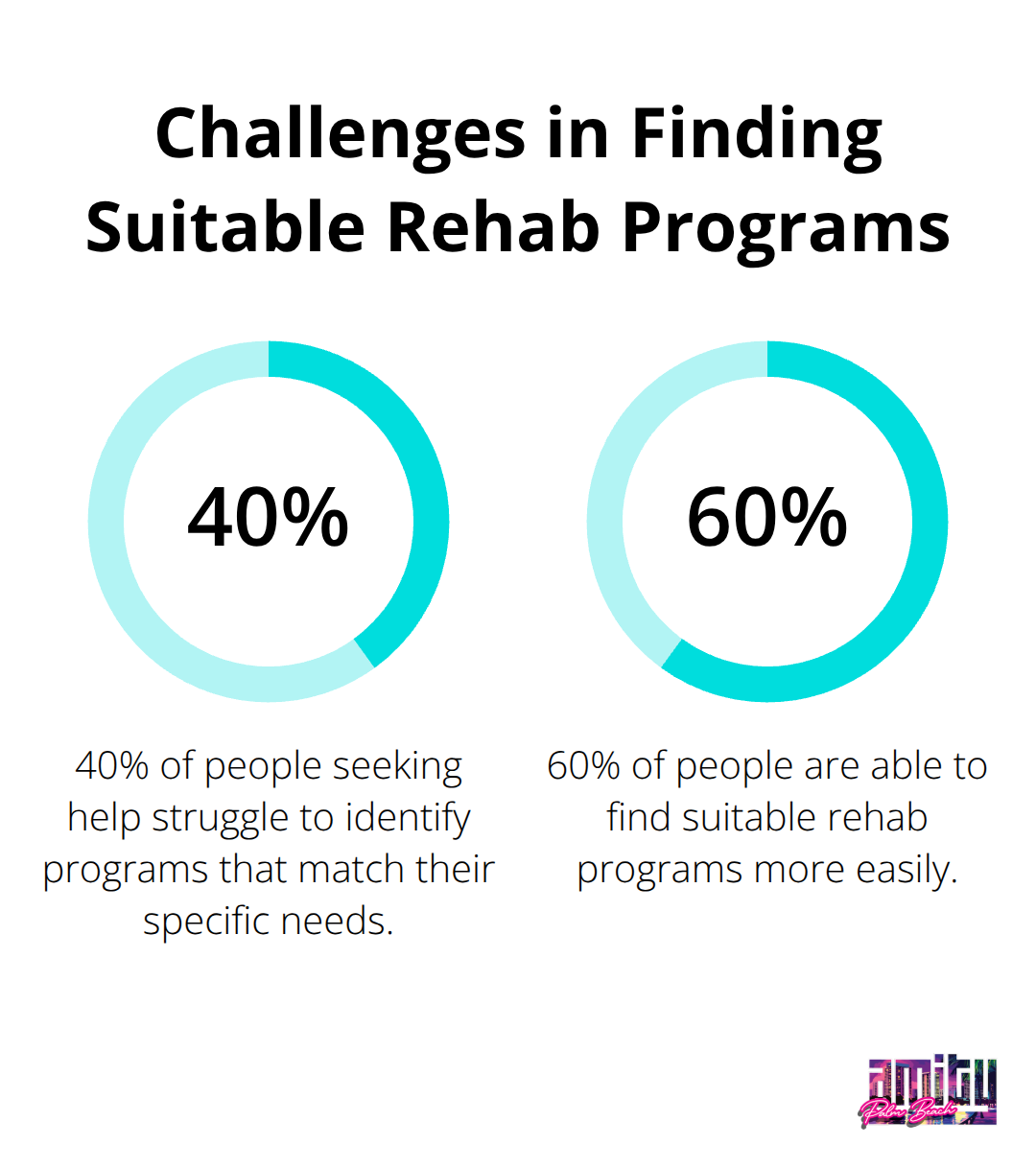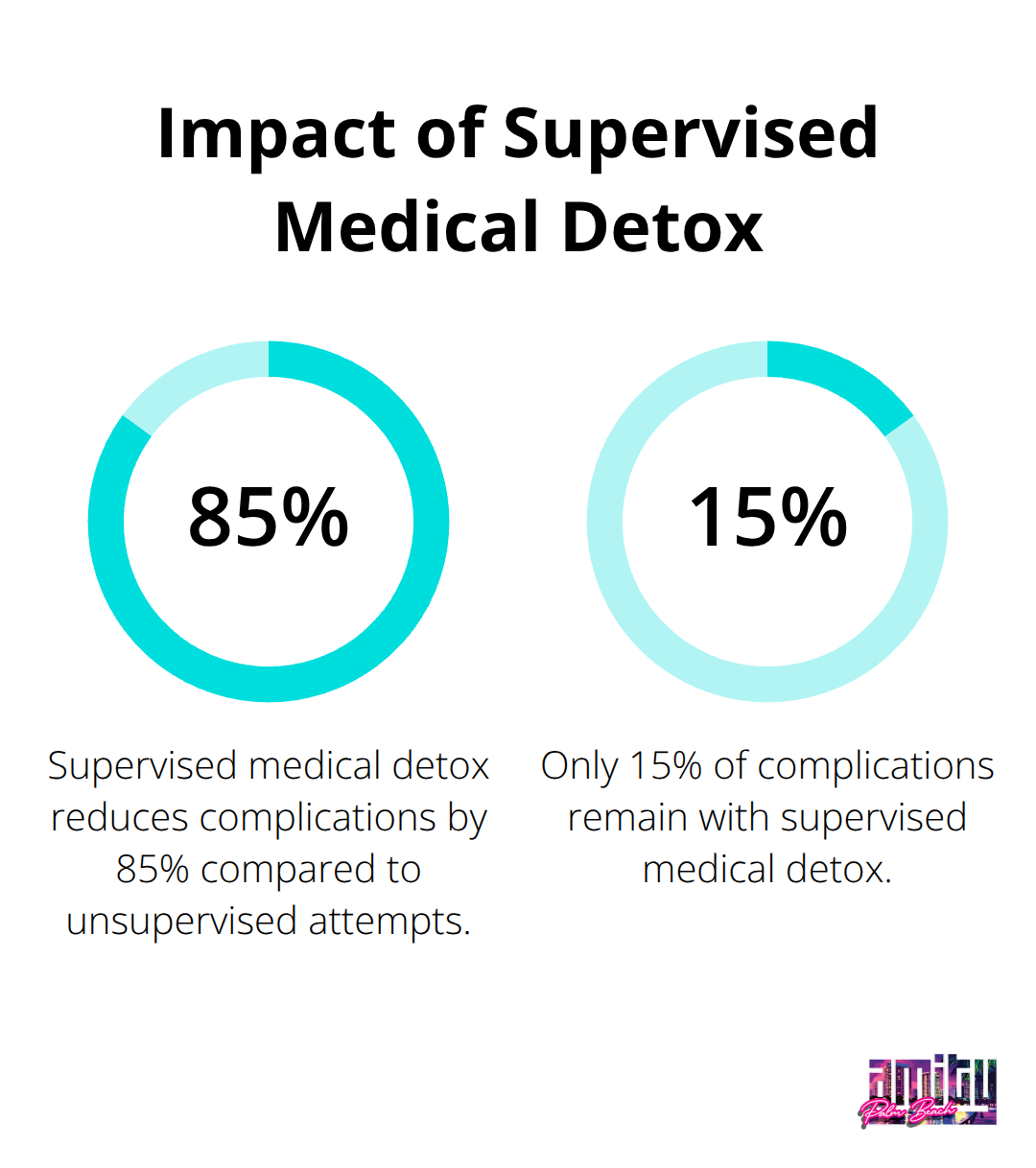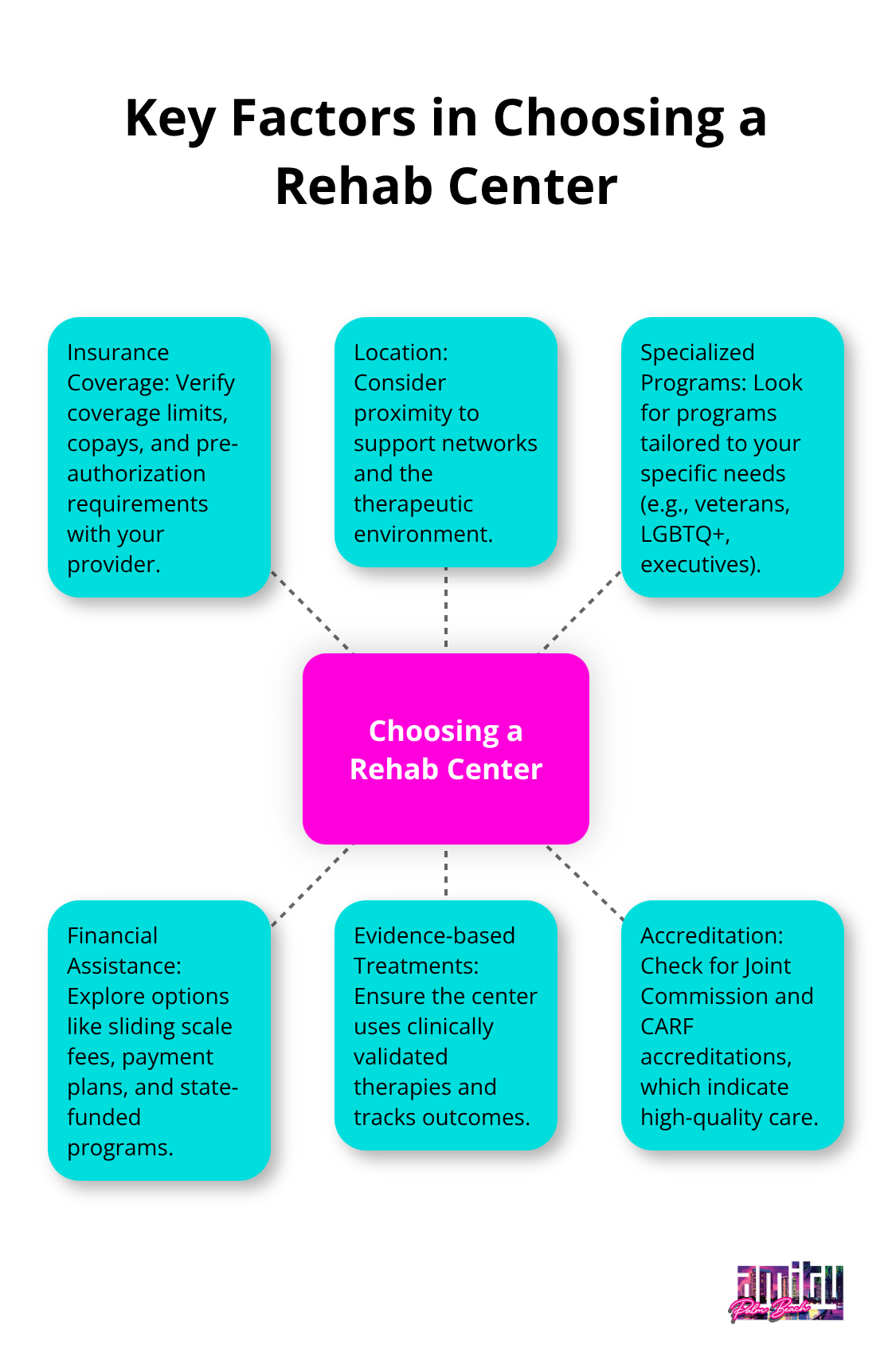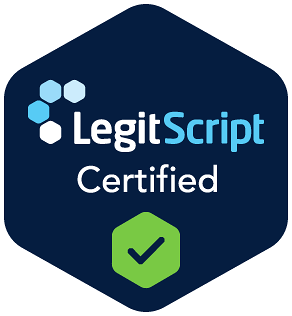Florida leads the nation with over 1,000 licensed treatment facilities, yet finding quality care remains challenging. Nearly 40% of people seeking help struggle to identify programs that match their specific needs.

We at Amity Palm Beach understand that choosing among the best rehab centers in Florida requires knowing what separates excellent facilities from average ones. The right center combines evidence-based treatment, proper licensing, and personalized care approaches.
What Makes a Rehab Center Top-Rated in Florida
Evidence-Based Treatment Programs Define Excellence
Top-rated Florida rehab centers implement treatments that clinical research validates. Cognitive Behavioral Therapy, Dialectical Behavior Therapy, and EMDR therapy demonstrate measurable success rates in addiction recovery. The National Institute on Drug Abuse provides comprehensive information about substance use treatment, prevention, recovery support, and related services.
Quality centers publish their outcome data and track client progress through validated assessment tools. Facilities that utilize standardized protocols (like the Addiction Severity Index) demonstrate commitment to measurable results rather than vague promises.
Accreditation Standards You Cannot Compromise On
The Joint Commission accreditation represents the gold standard for treatment facilities. The Joint Commission accreditation provides rehab centers with clear, evidence-based benchmarks to deliver high-quality patient care. CARF accreditation adds another layer of quality assurance, focusing on person-centered care and continuous improvement.
State licensing through the Florida Department of Children and Families remains mandatory, but top centers exceed minimum requirements. Check for multiple accreditations and recent inspection reports before making your decision.
Staff Qualifications That Matter Most
Centers with 3:1 client-to-staff ratios provide individualized attention that mass-treatment facilities cannot match. Board-certified addiction medicine physicians and licensed clinical social workers should lead treatment teams, not just supervise them. The best facilities employ master’s-level clinicians who specialize in addiction treatment and maintain active certifications.
Quality programs also invest in ongoing staff education and maintain low turnover rates. High staff turnover often signals poor management and compromises treatment continuity. These staffing standards directly impact your treatment experience and recovery outcomes as you explore key services that support lasting sobriety through comprehensive addiction treatment.
Key Treatment Services to Look For
Medical Detoxification Sets Recovery Foundation
Medical detox remains non-negotiable for safe recovery from alcohol, benzodiazepines, and opioids. Florida facilities that provide 24/7 physician supervision during withdrawal reduce medical complications by 85% compared to unsupervised detox attempts. The Florida Department of Health reports that medically supervised detox programs achieve 92% completion rates versus 34% for self-detox efforts.

Quality detox programs use standardized withdrawal protocols like the Clinical Institute Withdrawal Assessment to monitor symptoms objectively and prevent excess complications. Facilities that offer medication-assisted treatment with buprenorphine or methadone demonstrate superior outcomes for opioid addiction. The National Center for Drug Abuse Statistics shows that MAT reduces overdose deaths by 59% and increases treatment retention by 40%.
Residential Versus Outpatient Program Selection
Residential treatment works best for people with multiple failed outpatient attempts, severe co-occurring disorders, or unstable home environments. The Substance Abuse and Mental Health Services Administration data shows 90-day residential programs achieve 68% abstinence rates at six months compared to 45% for shorter programs.
Intensive outpatient programs suit working professionals who need flexibility while they maintain employment responsibilities. These programs typically require 9-12 hours of treatment per week (compared to 24/7 residential care) and allow clients to practice recovery skills in real-world situations.
Dual Diagnosis Treatment Changes Everything
Co-occurring mental health disorders affect 74% of people who seek addiction treatment in Florida according to SAMHSA data. Centers that integrate psychiatric care with addiction treatment show 73% better outcomes than facilities that treat these conditions separately.
Licensed psychiatrists should prescribe medications, not general practitioners who lack familiarity with addiction interactions. Trauma-informed care becomes essential since 89% of people with substance use disorders experienced childhood trauma according to the National Child Traumatic Stress Network.
Specialized Programs for Different Populations
Veterans require specialized treatment approaches that address military trauma and service-related stressors. LGBTQ+ individuals benefit from affirming environments that understand unique challenges they face in recovery. Executive programs cater to high-functioning professionals who need discretion and flexible schedules.
These specialized tracks recognize that one-size-fits-all treatment fails many people. Programs designed for specific populations achieve higher completion rates and better long-term outcomes than generic approaches.
When you evaluate these treatment services, consider how they align with your specific needs and circumstances as you explore the selection process for the right facility.
How to Choose the Right Rehab Center for Your Needs
Selecting the right rehab center is crucial for your recovery journey. Consider these key factors when making your decision:

Insurance Coverage Determines Your Real Options
Most Florida rehab centers accept major insurance providers like Aetna, Cigna, and Blue Cross Blue Shield, but coverage varies dramatically between plans. The average cost for substance abuse treatment in Florida reaches $56,640 per person according to the National Center for Drug Abuse Statistics. Inpatient programs cost $629 per day without insurance, but drop to $252 daily with 60% coverage.
Outpatient treatment averages $57 daily, reduced to $23 with insurance. Contact your insurance provider directly to verify coverage limits, copays, and pre-authorization requirements before you tour facilities. Many people assume their insurance covers treatment fully, then face unexpected bills that derail their recovery plans.
Location Impacts Your Recovery Success Rate
Florida’s therapeutic coastal environment provides measurable benefits for addiction recovery, but proximity to family support systems matters more than scenic views. Centers located within 100 miles of your support network show 34% higher completion rates than distant facilities according to treatment outcome studies.
Urban facilities offer more medical specialists and aftercare resources, while rural centers provide fewer distractions and triggers. Climate considerations affect people with seasonal depression or those who recover from stimulant addiction and need structured outdoor activities. Transportation access becomes essential for family therapy sessions and outpatient transitions.
Specialized Programs Match Your Specific Needs
Generic treatment approaches fail 67% of people with complex addiction profiles. Veterans need trauma-informed care that addresses military service stressors and PTSD connections to substance use. LGBTQ+ individuals require affirming environments where staff understand minority stress and identity-related triggers.
Executive programs accommodate professionals who need discretion and flexible schedules while they maintain career responsibilities. Women-only programs address gender-specific trauma, pregnancy concerns, and childcare needs that co-ed facilities often overlook. Young adult programs focus on brain development issues and peer influence factors that differ from adult addiction patterns.
Financial Assistance Options Beyond Insurance
Self-pay options and payment plans make treatment accessible when insurance falls short. Many facilities offer sliding scale fees based on income verification (typically 20-40% reductions for qualified applicants). Employee assistance programs through employers often provide additional coverage or direct payment arrangements.
Some centers accept medical credit cards or partner with financing companies that offer extended payment terms. Veterans can access VA benefits for treatment at approved facilities, while state-funded programs serve uninsured residents who meet income requirements.
Final Thoughts
You must evaluate evidence-based treatments, proper accreditation, and qualified staff ratios when you select among the best rehab centers in Florida. Top facilities combine medical detox, dual diagnosis care, and specialized programs that match your specific circumstances. Professional assessment remains vital before you choose any treatment program since licensed clinicians can identify co-occurring disorders, trauma history, and medical complications that influence your recovery path.
You need honest evaluation of your needs and available resources to take the first step toward recovery. Insurance verification, location considerations, and program specialization all impact your treatment success (with costs ranging from $23-629 per day depending on coverage). The National Institute on Drug Abuse emphasizes that individualized treatment plans achieve significantly better outcomes than generic approaches.
Recovery becomes possible when you access quality care that addresses addiction as a complex medical condition. We at Amity Palm Beach provide comprehensive assessment services and evidence-based treatment programs designed around your individual recovery goals. Amity Palm Beach combines clinical excellence with personalized support in a healing environment where lasting recovery begins through professional addiction treatment.




